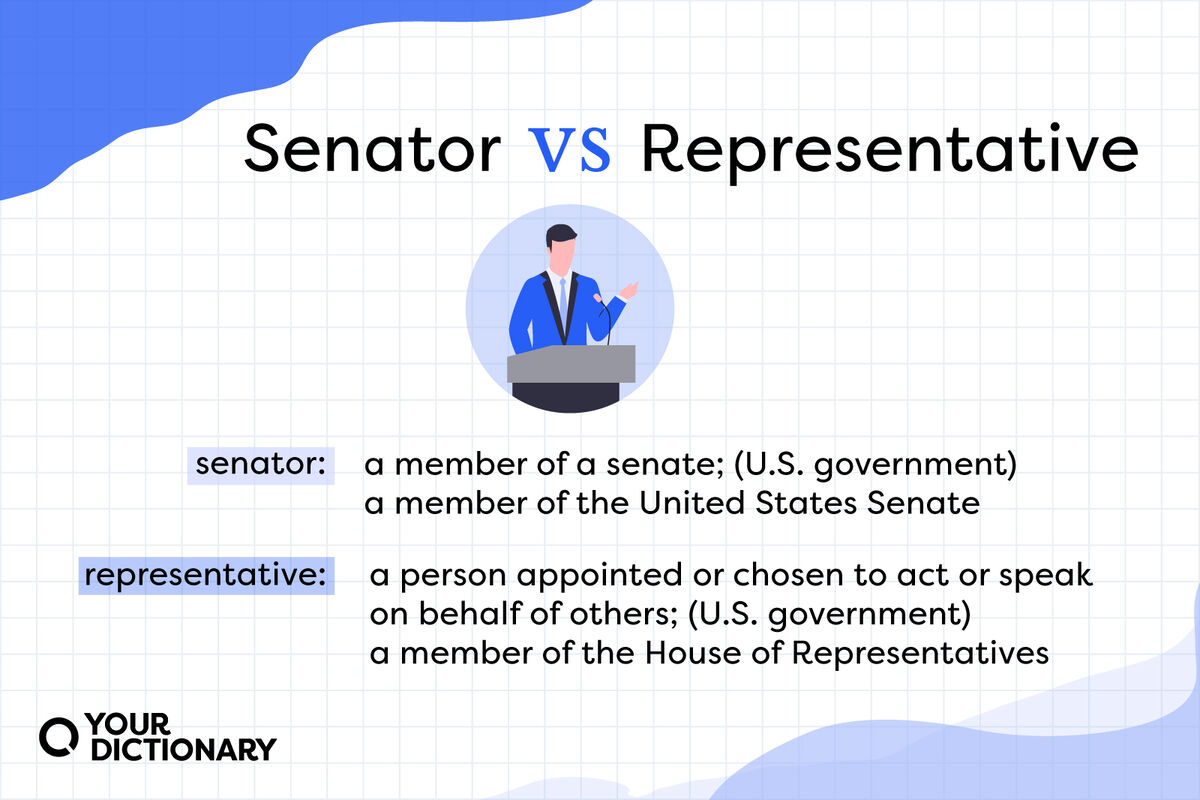
Ballots can be confusing to look at; depending on the election, you might be met with a long list of names and legislative titles that will make your head spin. Senator and representative are two of the most common titles that you’ll see, but they are distinctly different. Knowing those differences can help you figure out your ballot and better understand both local and federal governments.
What Does “Senator” Mean?
Broadly, senator refers to "a member of a senate." Used in reference to the U.S. government, senator refers to "a title given to a current (or former) member of the United States Senate."
The Senate is considered the upper body of the U.S. Congress, which is itself considered the legislative branch of the government.
While senators are responsible for a whole host of things that can overlap with representatives, senators have a variety of unique responsibilities, like advising on and confirming certain office nominations, including judges of the Supreme Court, ambassadors, and public ministers
Each state gets two senators, regardless of state population, making a total of 100 senators.
The Word Origins of “Senator”
Senator comes from the French word senateur and the Latin word senator, which simply meant “a member of the senate.” That likely comes from the Latin word senex, meaning “old; old man.”
Interestingly, senator initially referred to a member of the ancient Roman senate. In fact, in Papal Rome, Senator was an official title given to a singular individual who was appointed by the Pope.
What Does “Representative” Mean?
In general, a representative is "a person appointed or chosen to act or speak on behalf of others." In reference to U.S. politics specifically, representative refers to "a member of the House of Representatives," which makes up the lower body of U.S. Congress.
Along with senators, representatives partake in the fun of federal legislation. The House of Representatives comprises 435 representatives. However, the number of representatives apportioned to each state depends on that state’s population. Every state has at least one representative, regardless of population.
“Representative” or “Congressperson”: What’s the Difference?
Representative is interchangeable with congressman, congresswoman, or congressperson. All of these terms refer to people who are members of the House of Representatives. If you’re not sure of gender, stick with representative or congressperson.
Congress comes from the Latin word congressus, referring to "a meeting or the act of going or coming together."
Senators vs. Representatives: How To Tell The Difference
The main thing that you should know is that senators and representatives largely work in tandem to pass legislation and make sure all the inner workings of the country, well, work.
In terms of ballots and elections, voters choose both senators and representatives. This means that you’ll vote on representatives every even year, while senator elections are spread out a little, such that about one-third of the Senate will be up for a vote every election.
| Senators | Representatives | |
| Total | 100 | 435 |
| Total per state | Two | At least one (more depending on population) |
| Length of term | Six years | Two years |
| Leadership | Majority and minority leaders of each party | Speaker of the House |
| Bills | Can introduce all but revenue bills; can amend or reject such bills | Can introduce any bill |
| President/Vice President selection | Choose Vice President in the event that no candidate receives an electoral majority | Choose President in the event that no candidate receives an electoral majority |
| Impeachment duties | Conducts impeachment trials | Has the power to initiate impeachments |
Senators and Representatives in State Governments
For further confusion, senators and representatives exist at a state level. Nearly every state also has a bicameral (meaning “two chambers”) legislature. The one exception is Nebraska, which only has a State Senate but not a House of Representatives.
There are some intricacies to that, but basically, if you have a handle on senators and representatives on a federal level, you can apply the same ideas to the state level.